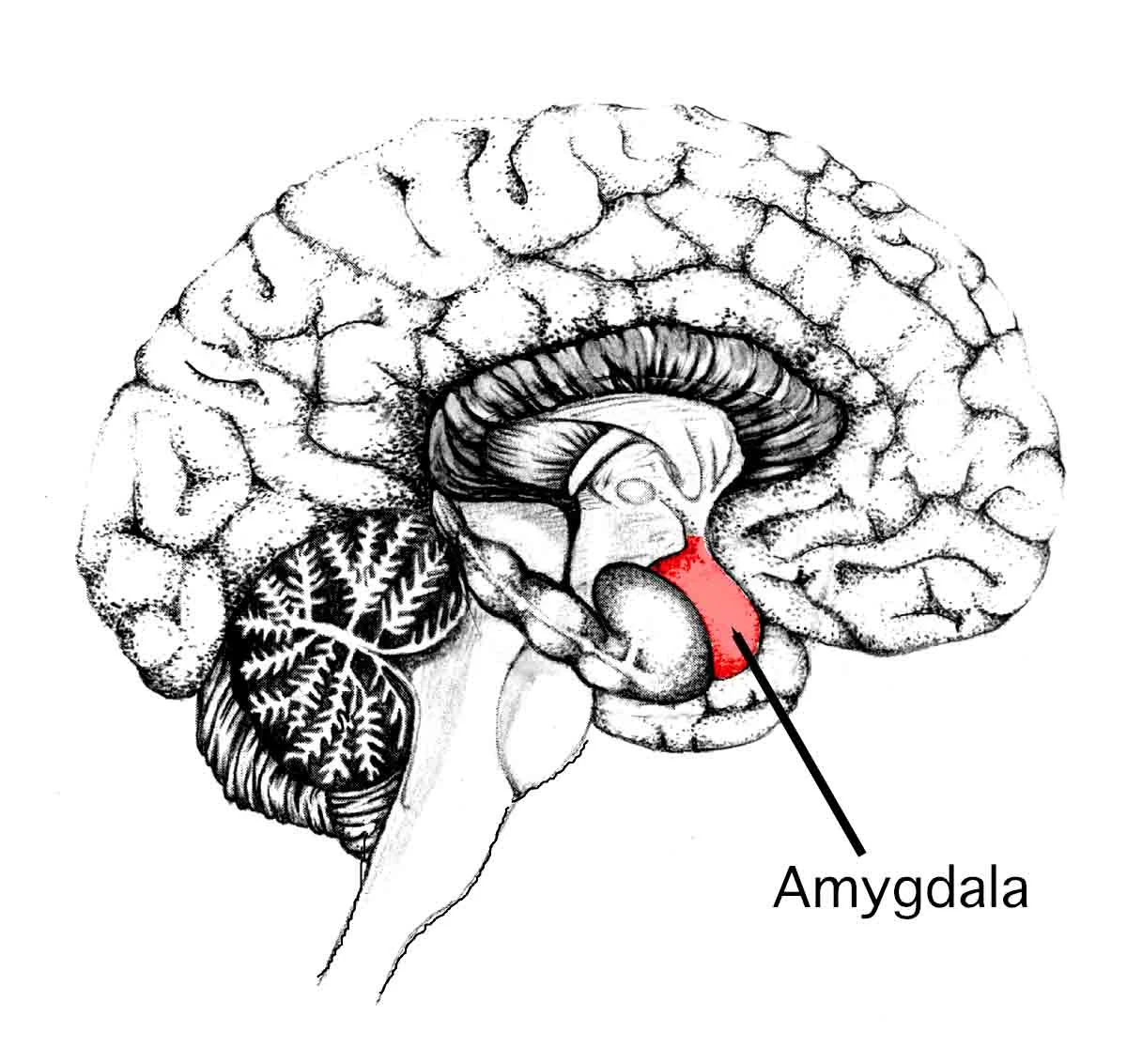FLIP THE SCRIPT - YOUR LIZARD BRAIN
Aug 29, 2019

The amygdala, the part of the limbic system which is responsible for processing our emotions.
Lizard brain and reptilian brain are both terms for the amygdala, the part of the limbic system which is responsible for processing our emotions. Heard the expression “fight or flight?” That’s all lizard brain. Not surprising to learn, it also controls behaviors like drug and sex addiction and compulsive overeating.
This old part of the brain lets us immediately recognize and react to a threat without the rest of the brain getting involved, providing that split-second life-or-death edge. Essential when we were being chased by tigers, but not exactly helpful in the present day. This survival instinct lives on in the amygdala, all but unchanged from caveman days, often with dreadful consequences.
Steven Pressfield calls this phenomenon “resistance” in his book Do The Work: “Resistance is an active, intelligent, protean, malign, force — tireless, relentless and inextinguishable — whose sole object is to stop us from becoming our best selves and from achieving our higher goals.”
HOW CAN YOU TELL WHEN YOUR LIZARD BRAIN IS IN THE DRIVER’S SEAT?
For many of us, just hearing about this is life changing. A real “light bulb moment.” Finally, there’s a name for that nagging unpleasantness that’s been holding us back and sabotaging our personal and professional achievement. And even better – finally there’s a roadmap to get from lizard brain to thinking brain.
SO WHAT DO YOU DO?
Your amygdala is here to stay, so you need to create some workarounds. At first these may sound ridiculous, ineffective, and maybe even dangerous, but trust me on this. They work.
-
Allow yourself to have “bad” ideas
-
Don’t have a Plan B (self-fulfilling failure)
-
Recognize failure as a learning opportunity - really
-
NO EXCUSES. Unless you have been pronounced dead by a physician, keep your word and do your work.
Dr. Mark Goulston’s book Just Listen uses psychologist Daniel Goleman’s term “amygdala hijack” to describe what happens when the amygdala perceives a threat severe enough to shut off the higher brain functions and yell, “I’m in charge here!” Much of Just Listen is geared toward preventing, recognizing, and recovering from this hijack. Goulston explains the lizard brain, the middle mammal brain (the seat of emotion), and the upper primate brain (the part that thinks and makes decisions).
I particularly like (and constantly use) Goulston’s five-step “Oh F#@& to OK” process, which walks you from full-on screaming lizard attack back to thinking human being.
-
“Oh F#@&” (Reaction) - I’m screwed. There’s no fixing this. Game Over.
-
“Oh God” (Release) - This is a huge mess. Why does this crap always fall on me?
-
“Oh Jeez” (Recenter) - I can fix this but it won’t be fun.
-
“Oh Well” (Refocus) - This sucks but I’m not going to let it ruin my life.
-
“OK” (Reengage) - I’m ready to get to work fixing this.
It’s important to go through and experience each of these phases. No amount of “It’s cool/I’m cool” lying to yourself is going to work until you engage with and work through each of these phases. Once you are aware of these stages, you can manipulate your emotional response to them.
My Dad and I employ another lizard brain hack that calls on the 10-10-10 rule. Which goes like “will this thing matter in ten minutes, ten months or ten years?” It’s called - perspective and long-term thinking. We talk often, and his wisdom at 76 combined with this hack often help me when my inner lizard is coloring big decisions.
A good first step is putting it all into words. Matthew Lieberman’s UCLA research found putting words like “angry” or “scared” to your emotions shuts the amygdala down almost immediately, letting your “smart brain” get back online. So, take a breath and write down (or say out loud) exactly how you feel as you walk through each stage. Just Listen even has a “speed drill” for you to rehearse cutting your response time for future hijacks.
The bad news is we all have the potential to turn into lizards at the slightest provocation. The good news is knowledge gives us the freedom to diffuse that bomb. I seriously believe that fear is the heart of all bad behavior; that when we come from a place of fear, our default setting is the lizard brain, creating chaos in the workplace and at home. Let’s everyone take a deep breath, put our fears and feelings into words, and engage our thinking brains to get these problems solved.
Vanquishing the lizard starts with each of us, every day.
Stay connected with news and updates!
Join our mailing list to receive the latest news and updates from our team.
Don't worry, your information will not be shared.
We hate SPAM. We will never sell your information, for any reason.

